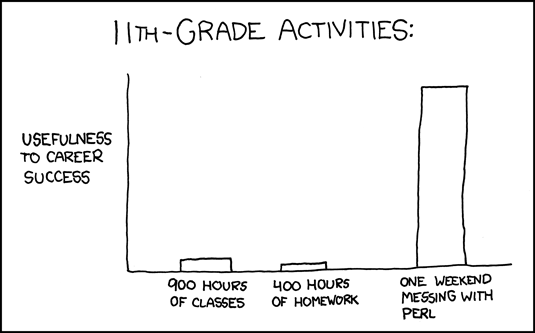Over the last 3 years my school hired 6 Teach for America teachers and 2 left before completing their two year commitment (one after a year, one after a semester). Many education reformers believe the quality of education is inadequate because the best and brightest choose other professions over education and so the remaining pool of teachers is less than what we need. TFA recruits and accepts people largely based on GPA and extracurricular achievement; the best and the brightest will be the best teachers. And it's a compelling argument that an ivy graduate will learn a new skill faster than someone from a community college.
The two teachers who quit were truly cream of the crop: great schools, great achievements, great resumes. (I don't know if other teachers quit at lower or higher rates.) TFA in NYC averages about a 90% retention rate over the 2 year committment. While external achievement may proxy successfuly for teaching achievement in the aggregate, there is a lot of variation too.
Many educators say that it takes 5 years to be a good teacher, and despite all of the public rhetoric on intrinsic ability determining teaching quality, both the Obama and McCain education plans focused on speeding teachers' ascent of the learning curve.
Here is the text from the Obama plan:- Expand service scholarships to underwrite high-quality preparation for teachers.
- Support ongoing improvements in teacher education to enable teachers to meet the challenges of their demanding jobs,
- Provide mentoring for beginning teachers so that more of them stay in teaching and develop sophisticated skills.
- Create incentives for shared planning and learning time for teachers.
- Support career pathways in participating districts that provide ongoing professional development and reward accomplished teachers for their expertise.
And here is the text from the McCain Plan (go figure the McCain website is down, but I still had his education platform saved as a pdf):
Provide Funding For Needed Professional Teacher Development. Where federal funds are involved, teacher development money should be used to enhance the ability of teachers to perform in today's technology driven environment. We need to provide teachers with high quality professional development opportunities with a primary focus on instructional strategies that address the academic needs of their students. The first 35 percent of Title II funding would be directed to the school level so principals and teachers could focus these resources on the specific needs of their schools.
One of the things that makes me uncomfortable in the education community is that these two approaches to maximizing teacher quality are often seen as mutually exclussive. I hardly ever hear people in the TFA camp acknowledging the importance of experience and professional development, or education traditionalists even acknowledging the existence of intrinsic human capital (excpet indirectly when complaining about other teachers).
Even supposing an extreme version of the alternative-certification narrative (read: teaching achievement is primarily determined by intrinsic ability as measured by traditional indicators), there is still an upper limit on the amount of the "best and brightest" we can lure away from other fields. To wit: even if we get all the best and brightest, they will still be only a fraction of the overall community of teachers, and the traditional focus on teacher quality improvement, classroom-size reduction, etc. still seems necessary to close the achievement gap.










